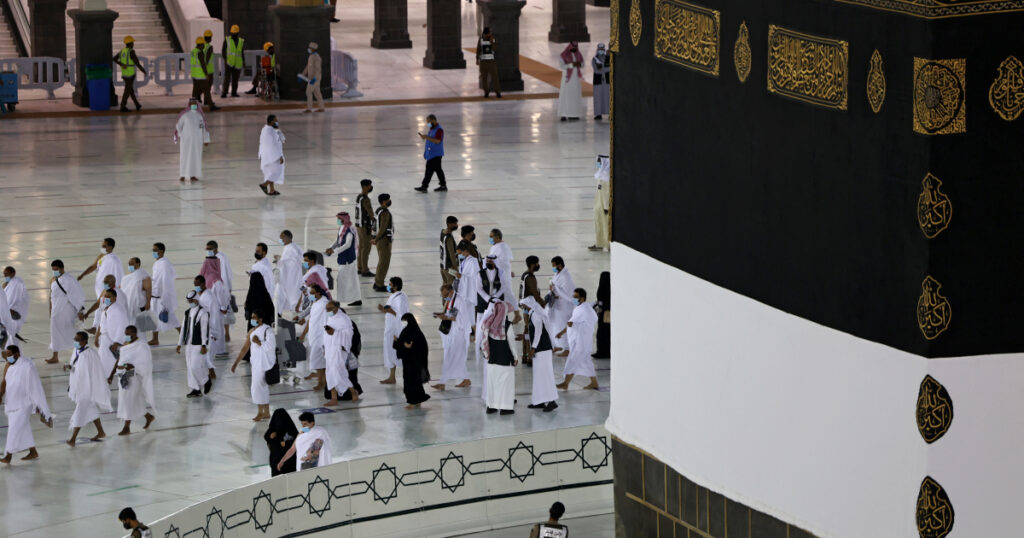In Pictures: Hajj in Mecca during the COVID pandemic

Tens of thousands of vaccinated Muslim pilgrims circled Islam’s holiest site in Mecca on Sunday but remained socially distanced and wore masks as the coronavirus takes its toll on the Hajj for a second year running.
Previously drawing some 2.5 million Muslims from all walks of life from across the globe, the Hajj pilgrimage is now almost unrecognisable in scale.
The pared-down Hajj of this year and last due to the COVID-19 pandemic not only affects the ability of people outside Saudi Arabia to fulfil the Islamic obligation but also the billions of dollars annually that Saudi Arabia draws from being the custodian of the holy sites.
The Islamic pilgrimage lasts about five days, but traditionally Muslims begin arriving in Mecca weeks ahead of time. The Hajj concludes with the Eid al-Adha celebration, marked by the distribution of meat to the poor around the world.
This year, 60,000 vaccinated citizens or residents of Saudi Arabia have been allowed to perform the Hajj due to continued concerns around the spread of the coronavirus. It’s a far greater figure than last year’s largely symbolic Hajj that saw fewer than 1,000 people from within the kingdom taking part.
The kingdom’s Al Saud rulers have staked their legitimacy in large part on their custodianship of Hajj sites, giving them a unique and powerful platform globally among Muslims. The kingdom has gone to great lengths to ensure the annual Hajj continues uninterrupted, despite changes caused by the pandemic.
Robots have been deployed to spray sanitising disinfectant around the cube-shaped Kaaba’s busiest walkways. It is here where the Hajj pilgrimage begins and ends for most.
Cleaners are sanitising the vast white marble spaces of the Grand Mosque that houses the Kaaba several times a day.
“We are sanitising the floor and using disinfection liquids while cleaning it two or three times during (each) shift,” said Olis Gul, a cleaner who said he has been working in Mecca for 20 years.
The Hajj is one of Islam’s most important requirements to be performed once in a lifetime. It follows a route the Prophet Muhammad walked nearly 1,400 years ago and is believed to ultimately trace the footsteps of the prophets Ibrahim and Ismail, or Abraham and Ishmael as they are named in the Bible.
